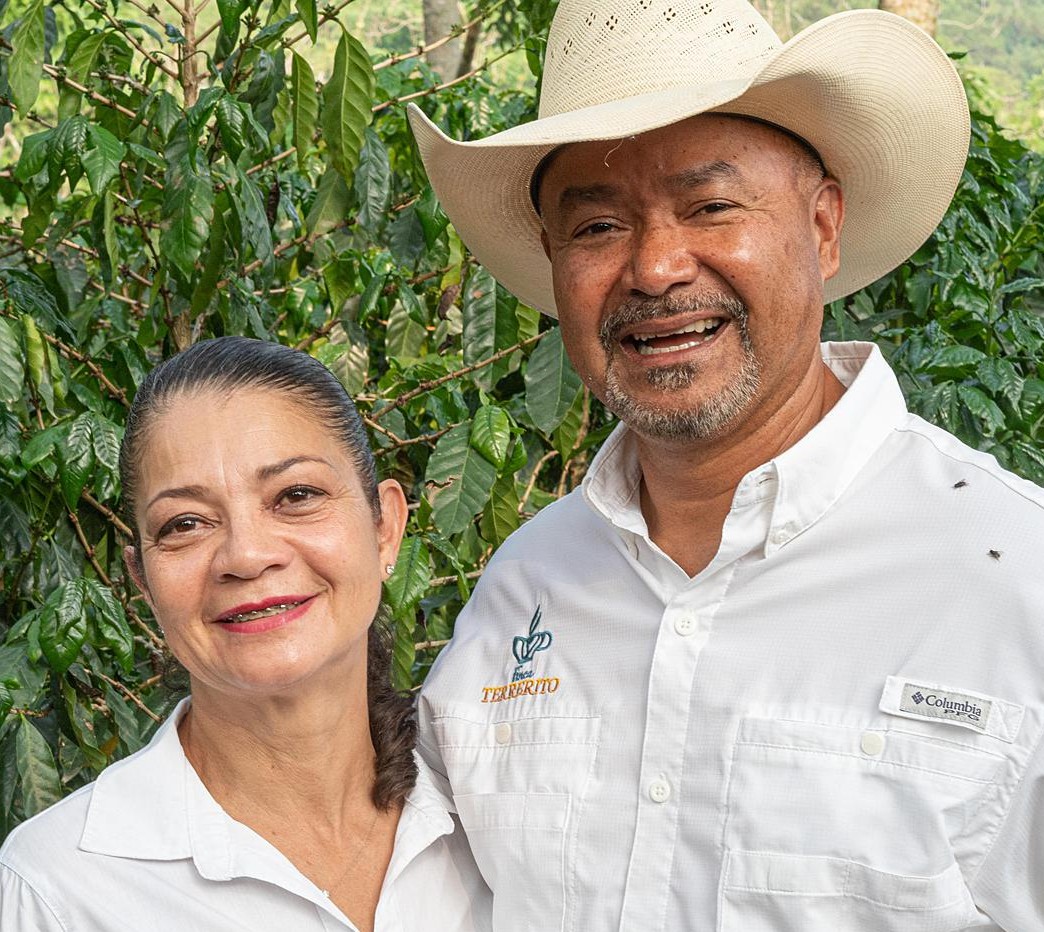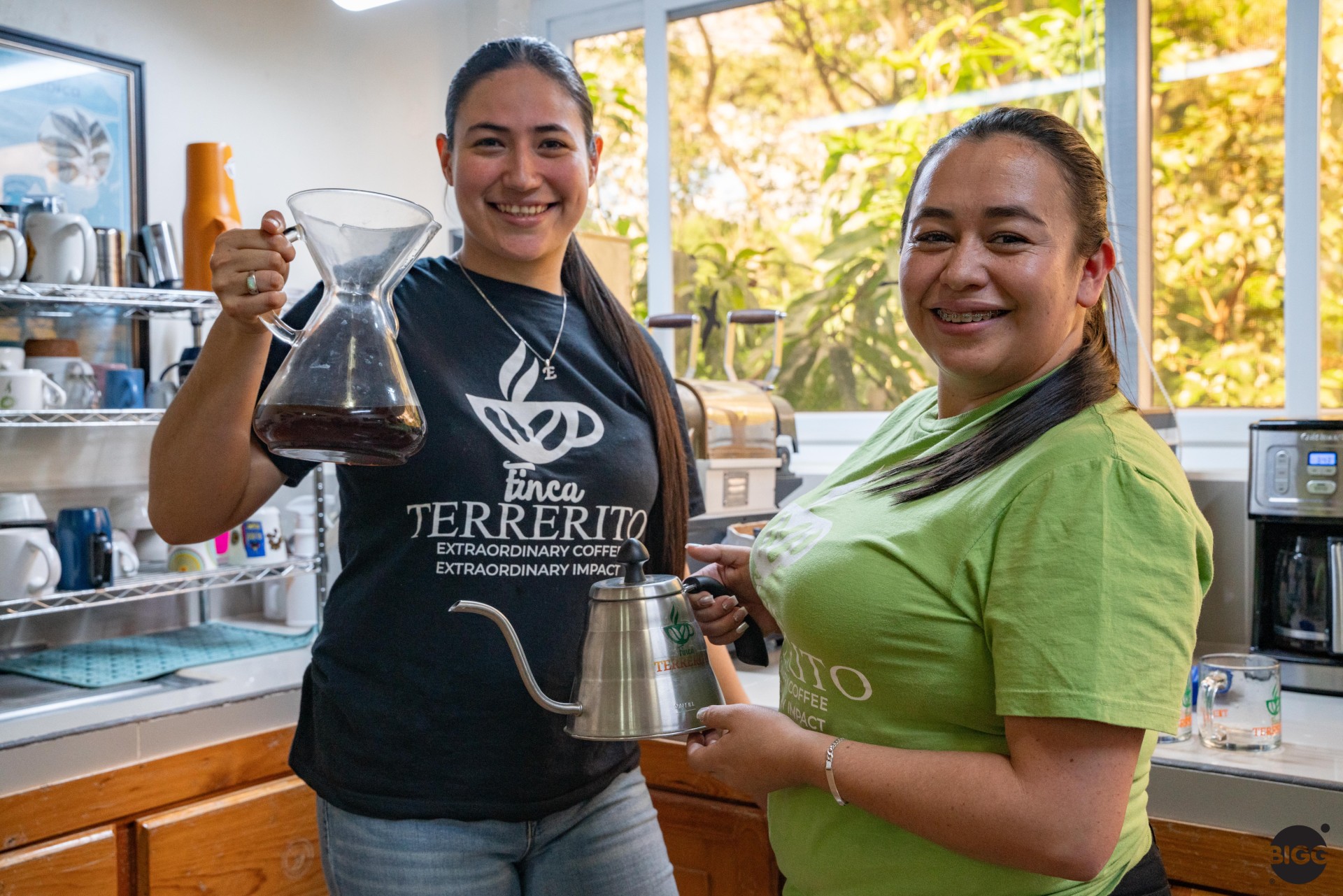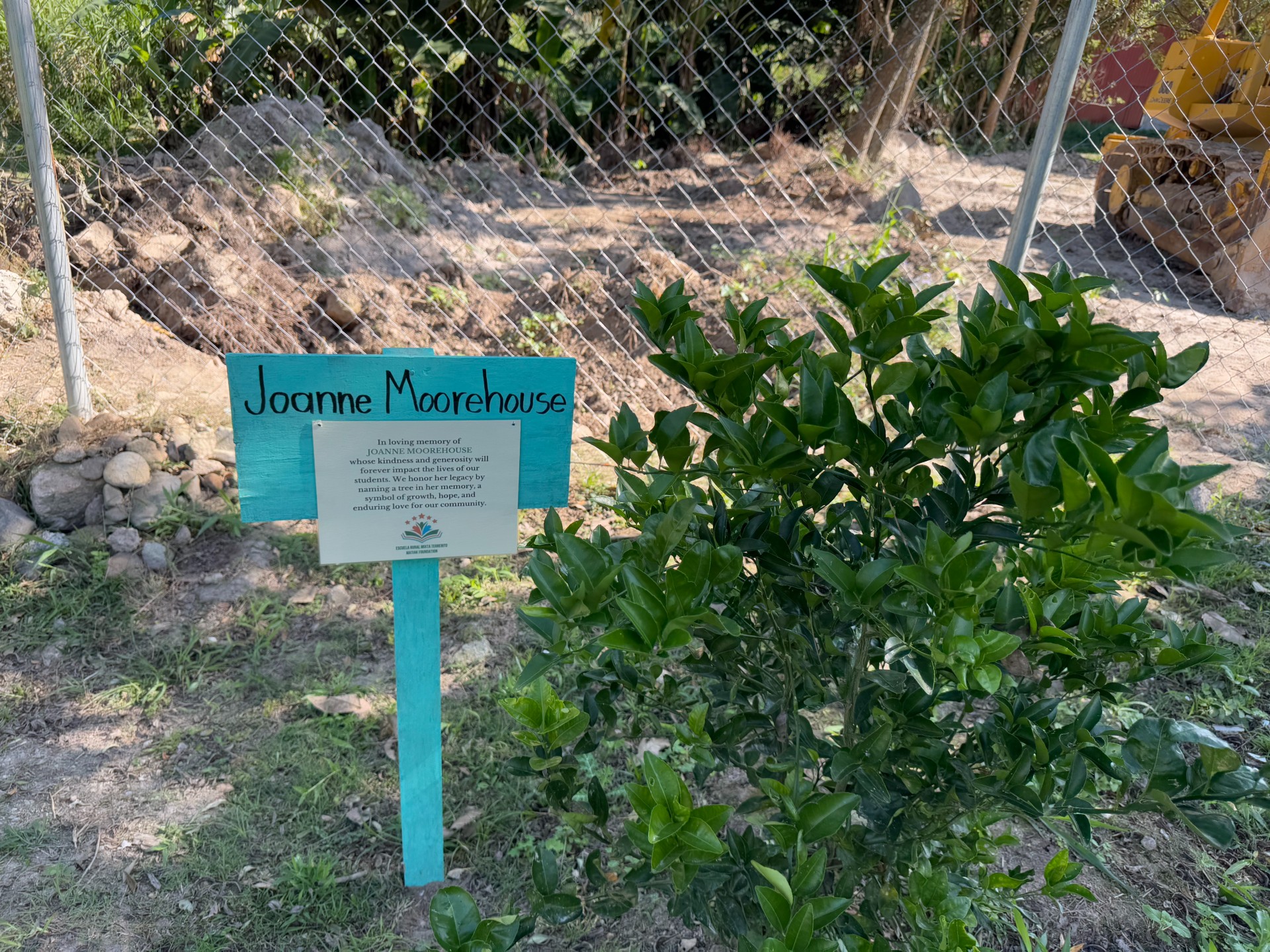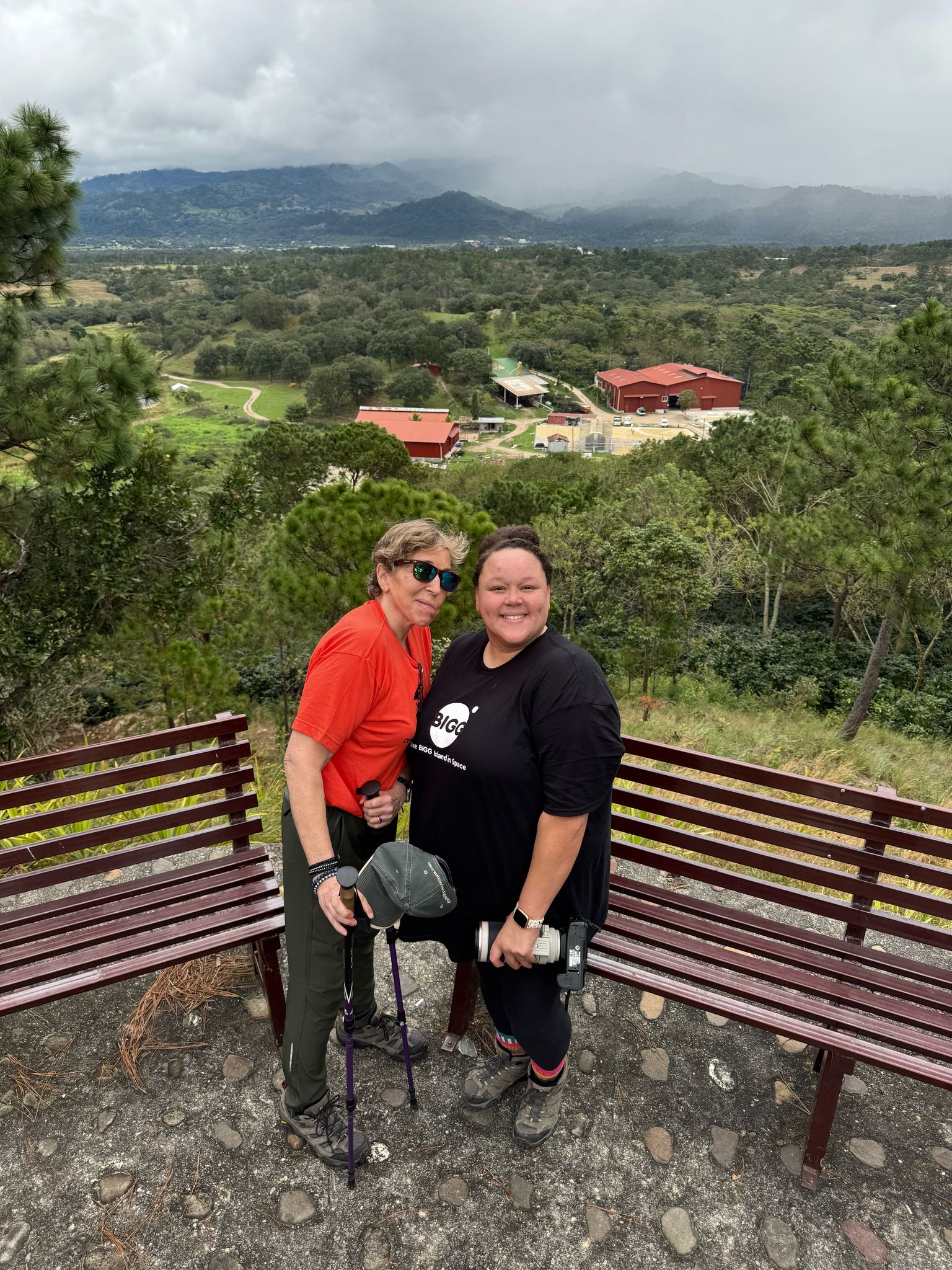By Michelle Fish
Sometimes, building a Farm-Direct relationship is like falling in love. When it’s right, and all of the pieces of the puzzle snap together, it’s like the angels sing and the sea parts. It’s like slipping the shoe onto Cinderella’s foot and finding that it’s the perfect fit. Those are some pretty extraordinary and powerful moments. And for all of the searching that we do out in the world, they don’t actually happen that often.
But oh boy, when they do… It’s exhilarating and so inspiring to find people that are up to so much good in their communities, using coffee as their medium to make big change for people and the planet.
I want to tell you about a Cinderella’s shoe kind of moment that we had earlier this year. And how excited we are about the future relationship we are building with Finca Terrerito in Copán, Honduras.
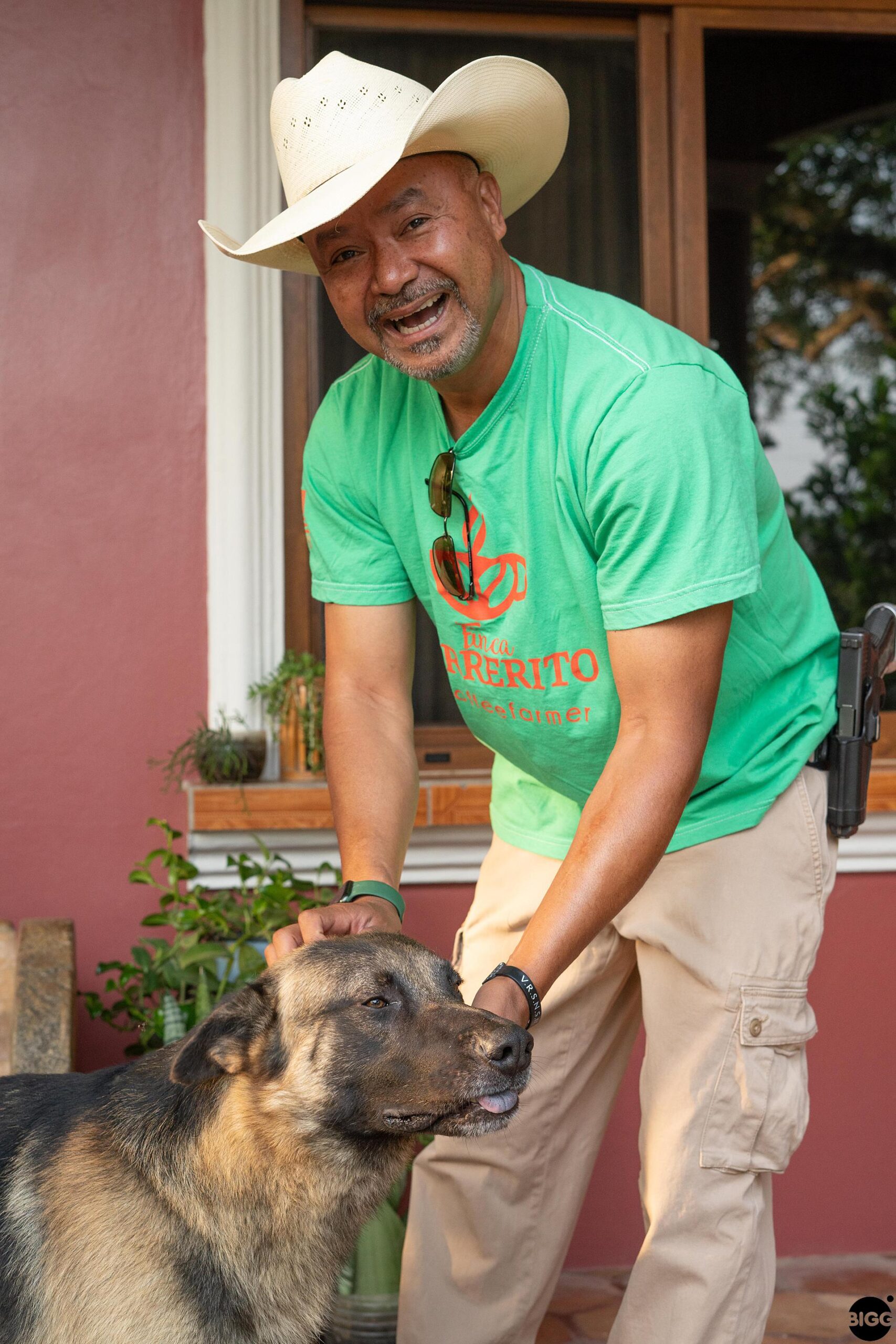
Al Lopez
Meet Al Lopez
In March of 2023, Bob and I were attending the Producer Roaster Forum in San Salvador. That’s a coffee tradeshow that focuses on building connections between producers and buyers in Central and South America.
We were approached by a group from a farm in Copán, Honduras, led by Al Lopez. He came there, in part, with a mission to meet us. He’d heard about OBIIS and our Farm-Direct model and he’d read our blog. He’d even watched Bob and Mike’s TED TALK.
And he wanted to tell us his story.
By the time he finished his tale, we knew we had to go visit his farm and walk his fields. Something big was happening in Copán.
The Long and Winding Road
Al was born in in a remote village in the jungle terrain of La Moskitia, Honduras, near the border with Nicaragua. His parents had been sent there to build and run a school for the indigenous people that inhabited the jungle. It was a life that was as far off the grid as you can imagine.
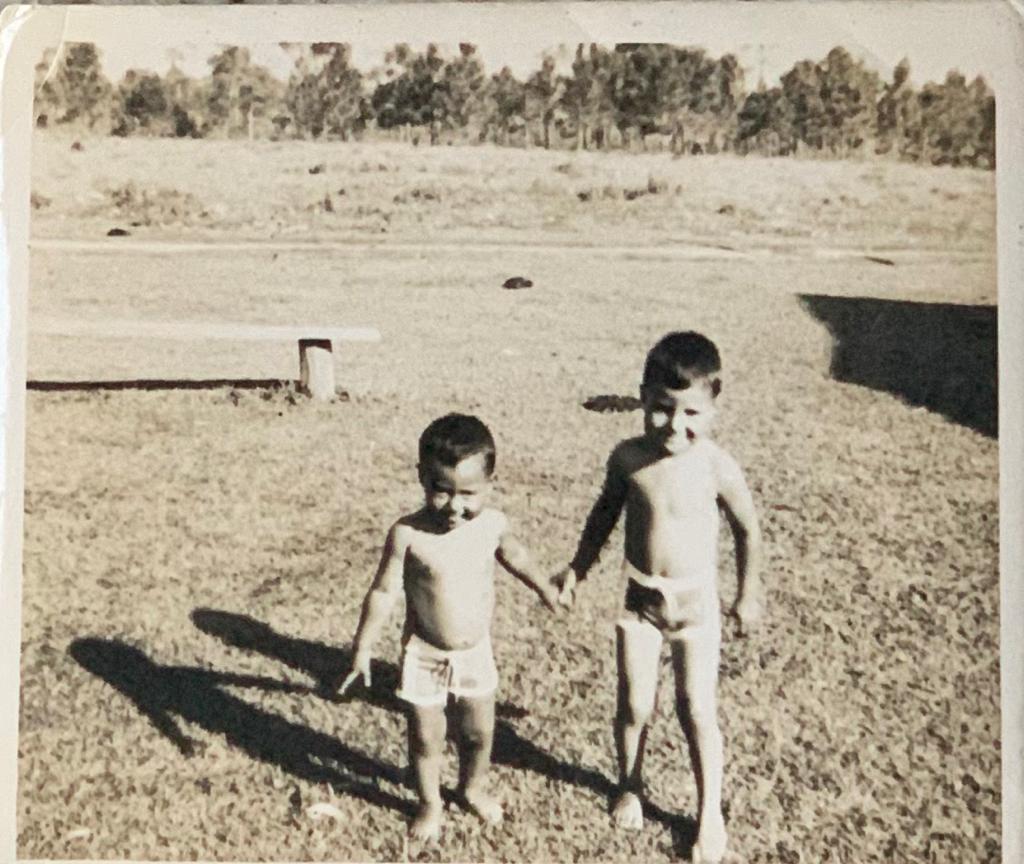
Al and his younger brother in La Moskitia, circa 1968.In 1968, they moved back to “civilization,” as Al puts it, to his parent’s hometown of Corquin in Copán. Although the family came from a long line of coffee farmers, his parents weren’t interested in that kind of life. They bought a parcel of land that they intended to farm with corn and beans, while Al’s dad pursued other opportunities.
Soon after, his parents divorced. And, awhile after that, his father remarried. His new stepmother was a Peace Corps worker and a U.S. citizen. Soon, the couple relocated to the south side of Chicago to start their new lives together.
Al and his brother stayed behind in Copán with their mother. But life was a constant struggle in their village, even to meet the basics of life like food and shelter. Al’s mother understood that her boys would have very few opportunities if they stayed in Honduras. She was determined that they would have the chance to live lives that were bigger, safer, and more rewarding than their little village could ever offer. So, she made the difficult decision to send them to live with her ex-husband in the U.S. And that changed everything.
But it took a while.
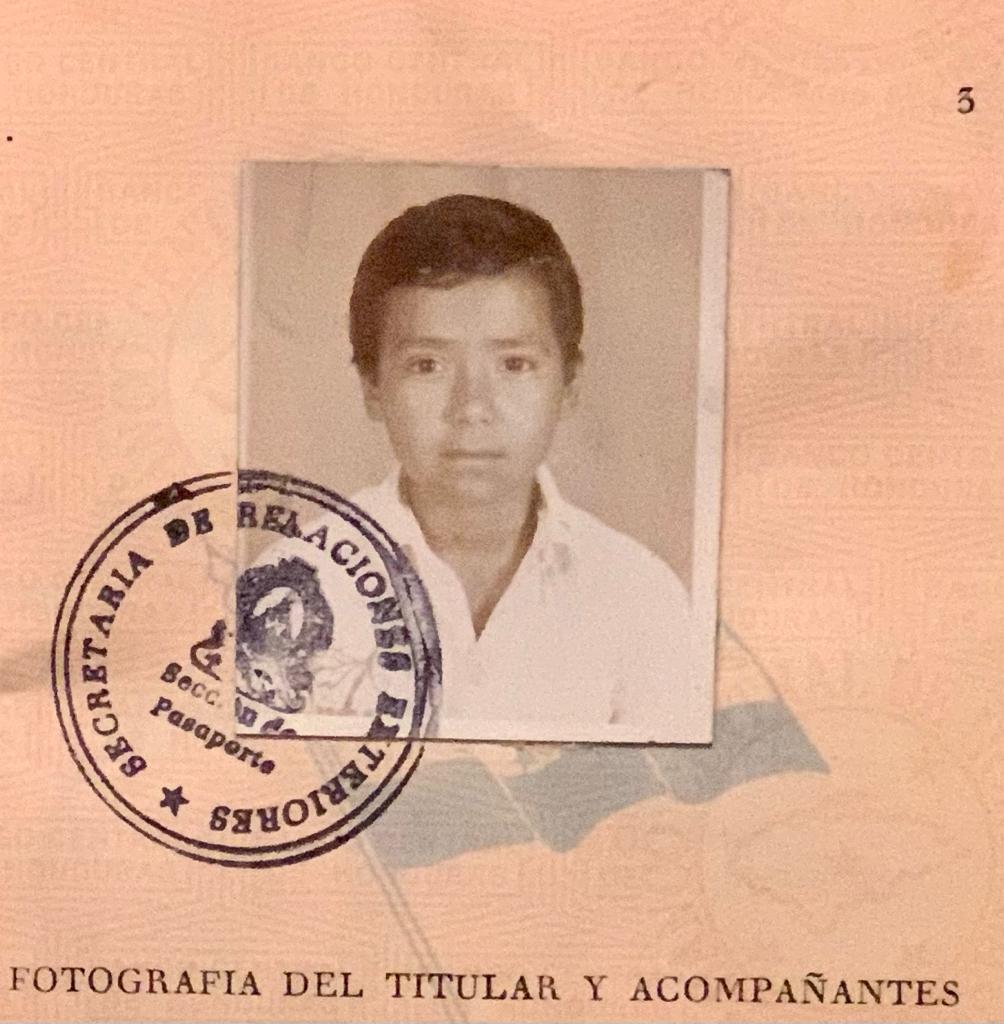
Al’s Passport photo for his big trip to Chicago.
Chicago
Life on the south side of Chicago in the early 1970s was so infamously rough and tumble that Jim Croce wrote a song about it. It wasn’t a welcoming place. And kids can be the least welcoming of all.
Al and his brother started at the local school. And the way Al describes it, he regularly got his butt kicked.
School years were tumultuous. Al’s dad kept a pretty strict household, but he still managed to get himself in and out of trouble. Although he was clearly very bright, school wasn’t his thing.
As a high school sophomore, Al could read the writing on the wall. College did not appear to be in his future. And he didn’t want to spend his life on the streets in trouble.
So, he pre-enlisted in the U.S. Army as an infantry soldier and paratrooper, with big plans to go to into the Special Forces, either as an Army Ranger or a Green Beret. He graduated high school, and he shipped out to Fort Benning, Georgia, for Special Forces training.
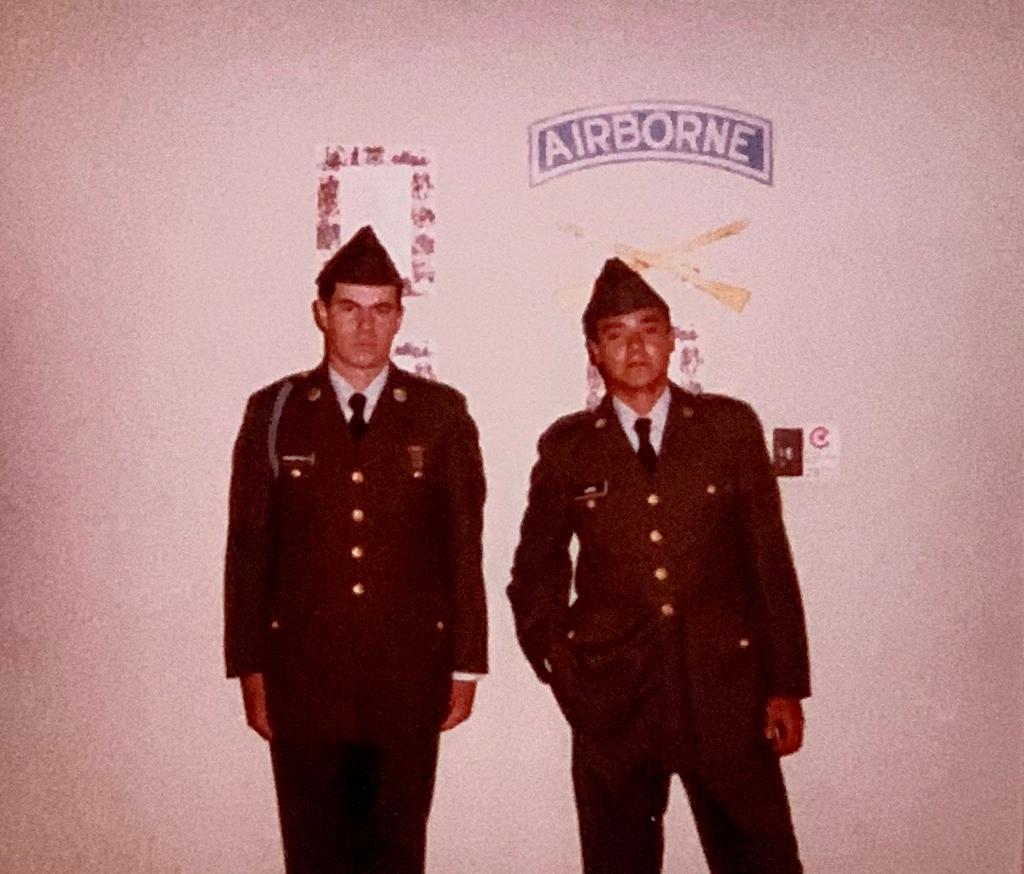
In the Army
Right out of the gate, Army life just “clicked” for Al. He loved the discipline, the sense of purpose, and the feeling that he belonged to a team, something much bigger than himself. He did well. He wanted to push himself. He wanted more.
Unfortunately, fate had other plans. He was severely injured during a training exercise. It was enough to knock him off the Special Forces track. He was heartbroken. Although he could have stayed in the Army, he wasn’t interested in a desk job. So, he took a medical discharge, and went back to Chicago.
Side note: he missed the Army so much that he joined the Reserves, where he served proudly until 1988.
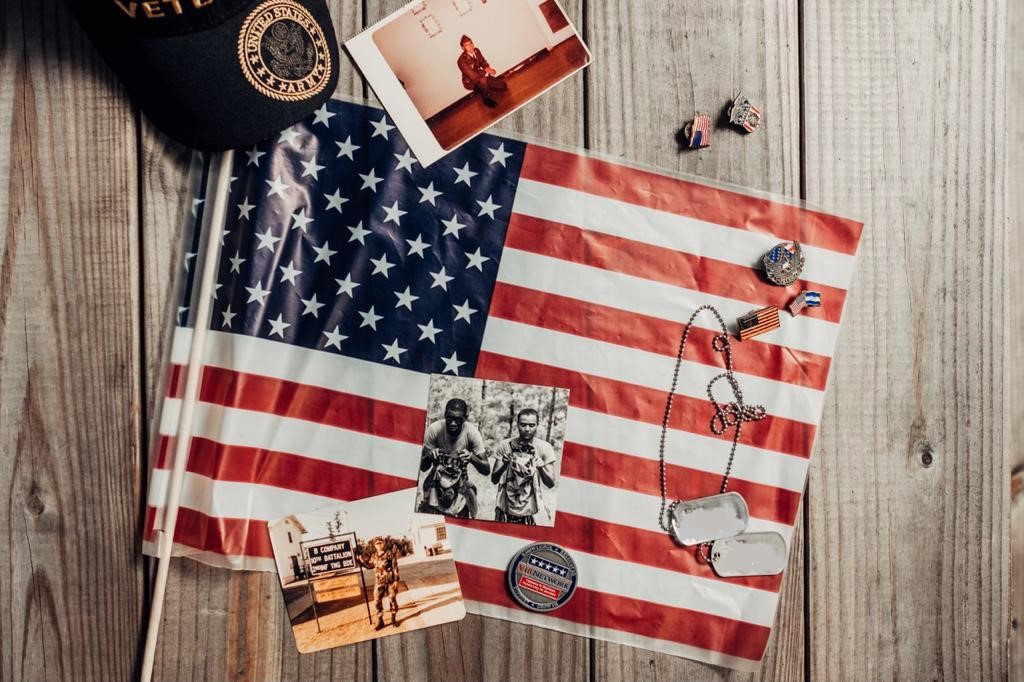
A collage of Army memories. Side note: I blurred out his dog tags so none of us could read his Social Security number.
What next?
He drifted for a while, doing work at a factory. It wasn’t particularly fulfilling. Or, in fact, fulfilling at all. But he did his job well, and he liked that he could afford his own place, with enough left over to hang out with his friends on the weekends.
The manager on the factory floor had taken an interest in Al. And for months, he pressed him to leave the factory and go to college. But school had never held much attraction for him.
Finally, his manager pointed to another man working on the factory floor, doing the same job Al was doing. The man was in his 60s. He’d been at the factory for his entire career. And he was making about $0.25 more an hour than Al was. His manager asked him “is that where you want to be when you’re 60?”
It was enough of a push. He enrolled in Community College.
New Directions
Al had never considered an academic pathway. For one thing, he didn’t have many people in his life that had gone that route. But he did have one important role model with a professional career: his stepmother. She was an accountant, and a successful one, at that. So that’s what he set out to become.
It turns out that Al was actually pretty good at academics. He excelled in his classes, helped along by his study partner, a young woman named Leticia.
The way Al describes it, there are few things more motivating than trying to impress a beautiful woman. And it worked! She was impressed enough to become his bride, and they’ve been very happily married for 35 years.
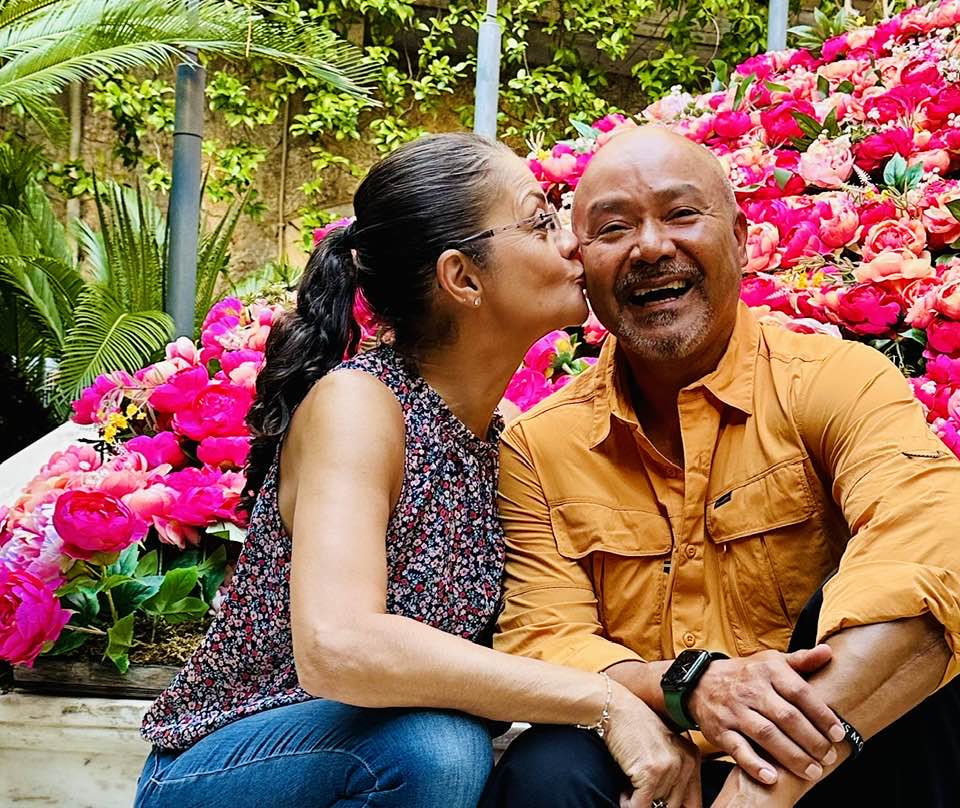
Al and Leticia Lopez celebrating their 35th wedding anniversary.
Corporate Success
After earning his degree from the University of Illinois, Al embarked on a corporate career that can best be described as meteoric. He worked his way up through Coopers & Lybrand to become a Senior Auditor.
From there, he moved to international food giant Sara Lee as the Chief Financial Officer (CFO) and Group Vice President (VP). And then to Dole, where he was the CFO and VP overseeing, among many other things, their agricultural production in Central and South America.
Finally, he became the President and Chief Executive Officer of Blair Corporation, one of the original founding companies on the American Stock Exchange.
It was a very far cry from his small village in Copán, Honduras. And although he had achieved the kind of success that put him at the very top echelons of corporate America, the small village in Copán never left his heart. He still had friends there that he visited often. And his mother was still there.
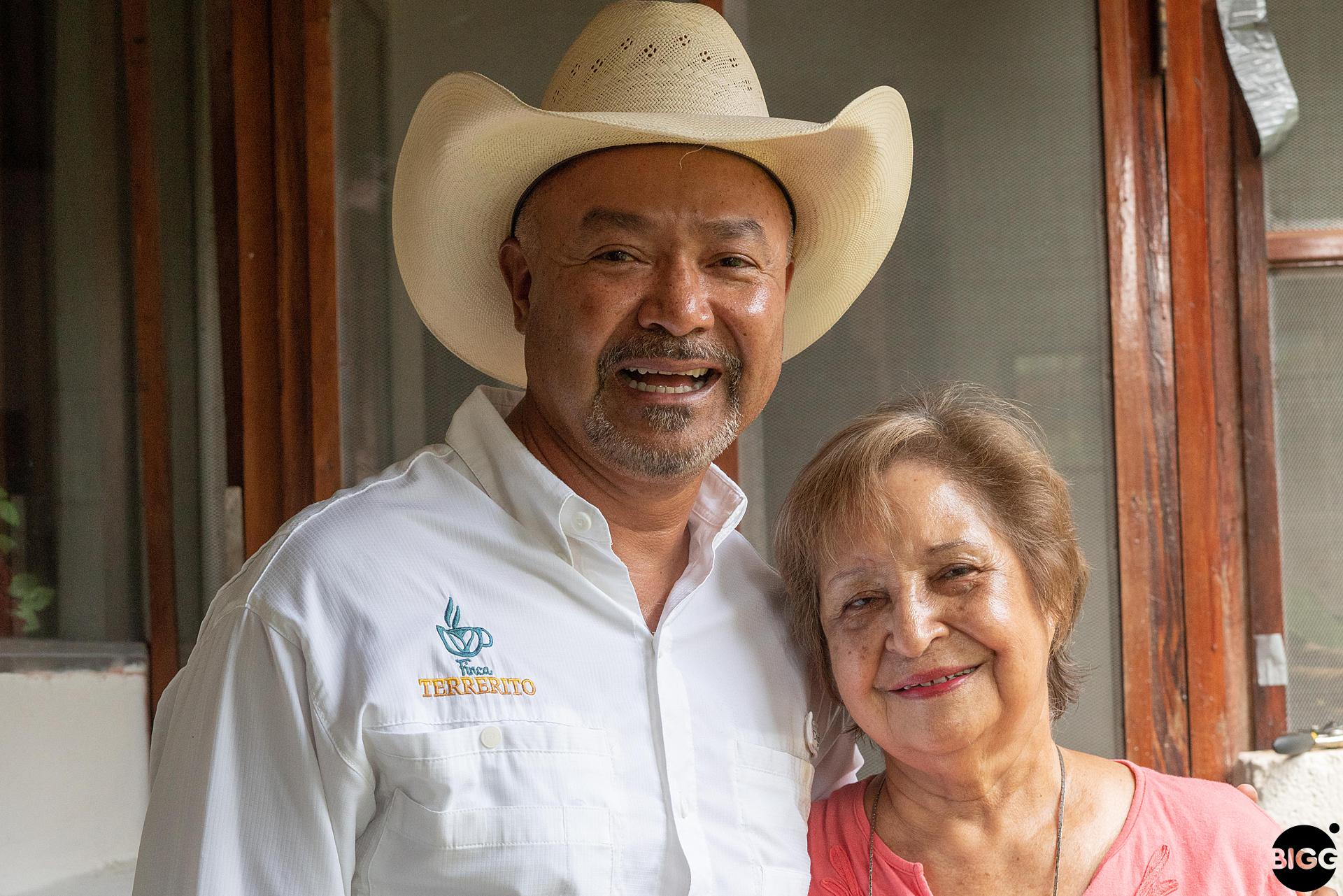
Al and his Mom in 2023.
Full Circle
In 2001, Al got a call from her. She was thinking of selling the land. Taking care of it had become too much of a burden. Without hesitation, Al told her he wanted to buy it. She said no. More than no, she said she wouldn’t allow it. After all, he had been the smart one that had gotten out. And she wasn’t about to let him end up as a farmer.
Thankfully, he was able to talk her into it.
It took Al seven years to put the plan in place to build a coffee farm. He was going back to his roots, via his grandparents who had made their lives in coffee. But he was doing it with all of the knowledge and experience he had gained from his corporate career tempered by his deep commitment to people and the planet.
In the meantime, Al allowed family members to graze cattle on the farm until 2008. That’s the year Al left the corporate world and decided to go change the game for the coffee farmers. And in 2008, Finca Terrerito was born as a coffee farm under three main pillars; improving lives, sustainable farming, and extraordinary coffee.
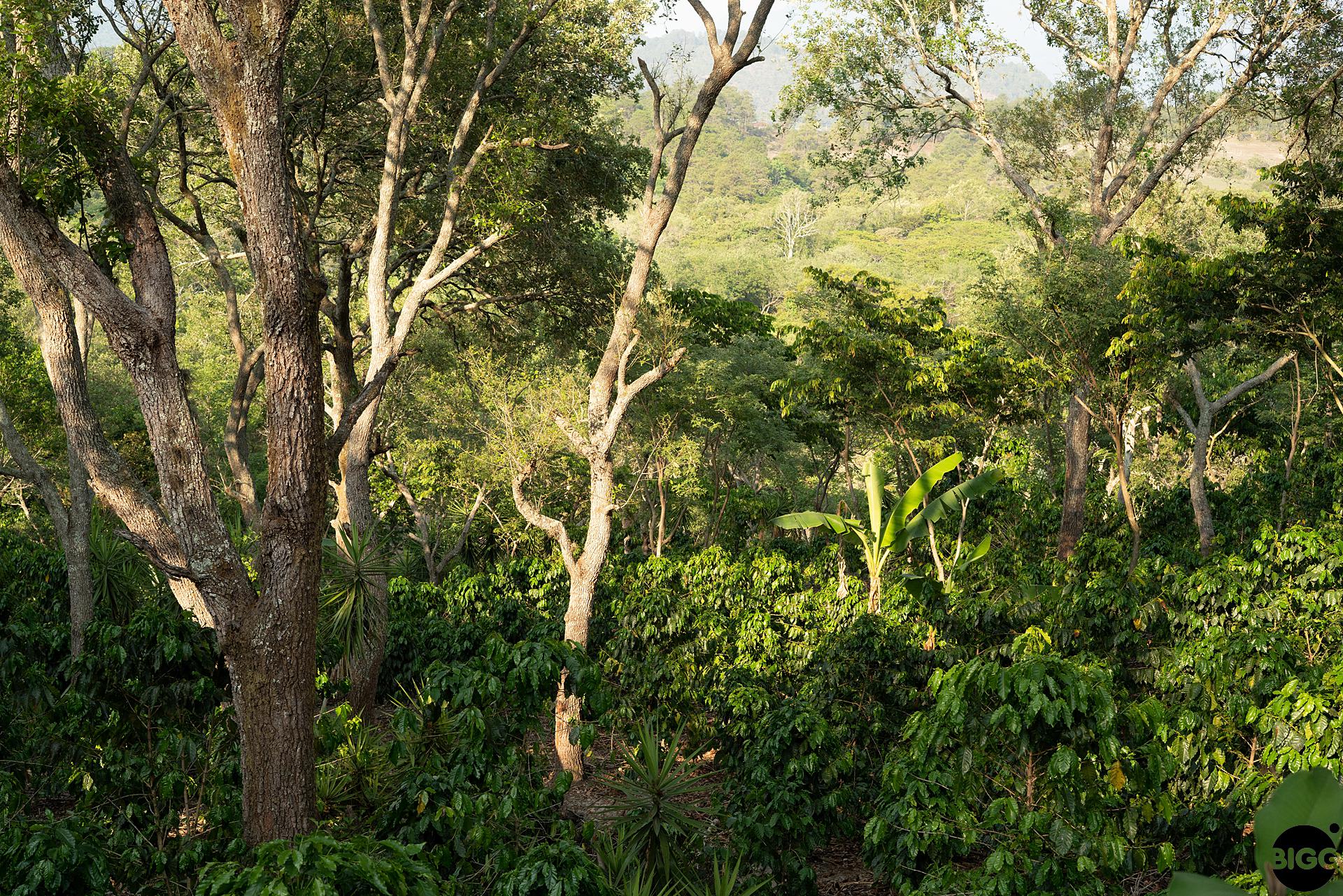
The coffee at Finca T.
Finca T
Al had a vision for what Finca T, as it’s affectionately known, could be. And transforming a vision from a dream to a reality takes a lot of hard work, and a lot of investment. Some, who aren’t privy to the insight, might even call it irrational investment.
Al built the infrastructure at the farm from scratch. He planted the first coffee trees, ensuring a no land or tree clearance policy. He says he was out to prove that coffee and pine trees could co-exist.
He also planted many more native trees on his 278 acres to serve as shade where the coffee needed it. In addition to building a coffee farm, he created an oasis for wildlife and birds.
At his own expense, he brought electricity to the area, both to the farm, and to the nearby village.
The Building Continues
He is building an organic composting facility, and putting the final touches on a reservoir that he started building in 2017 in response to the challenges of climate change. Farmers in this part of Honduras can no longer depend on the rains to come at the right time, and in the right amounts, to keep the coffee healthy.
He built housing for the temporary workers, including their families. And he has a strict “children must be in school” policy so there is never any child labor in the fields.
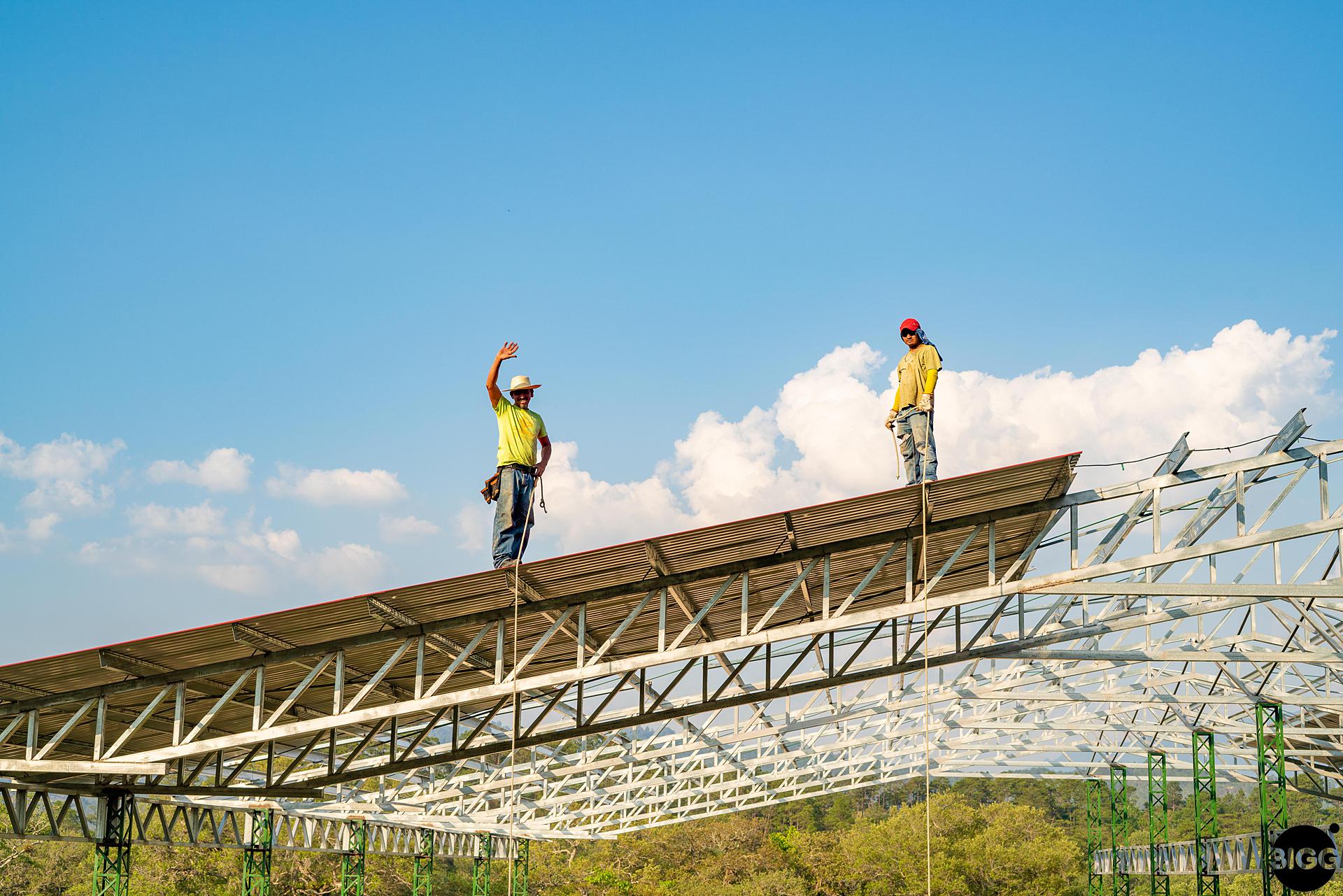
In partnership with the Matiak Foundation, he is building a school and a clinic that will serve both the workers at the farm, and the people in the nearby village. And he is building a water well that will provide potable water to the people in the area.
In 2020, during the COVID-19 pandemic, he started building his own dry mill, hiring dozens of local people that had been laid off because of the shutdown.
He is sharing his success with 30+ small producers in the region. Al’s team works with them to teach them the best agronomy to improve their quality and be good stewards of their land. Then they buy their coffee at a price that is significantly higher than the C-Contract price they would get on the open market.
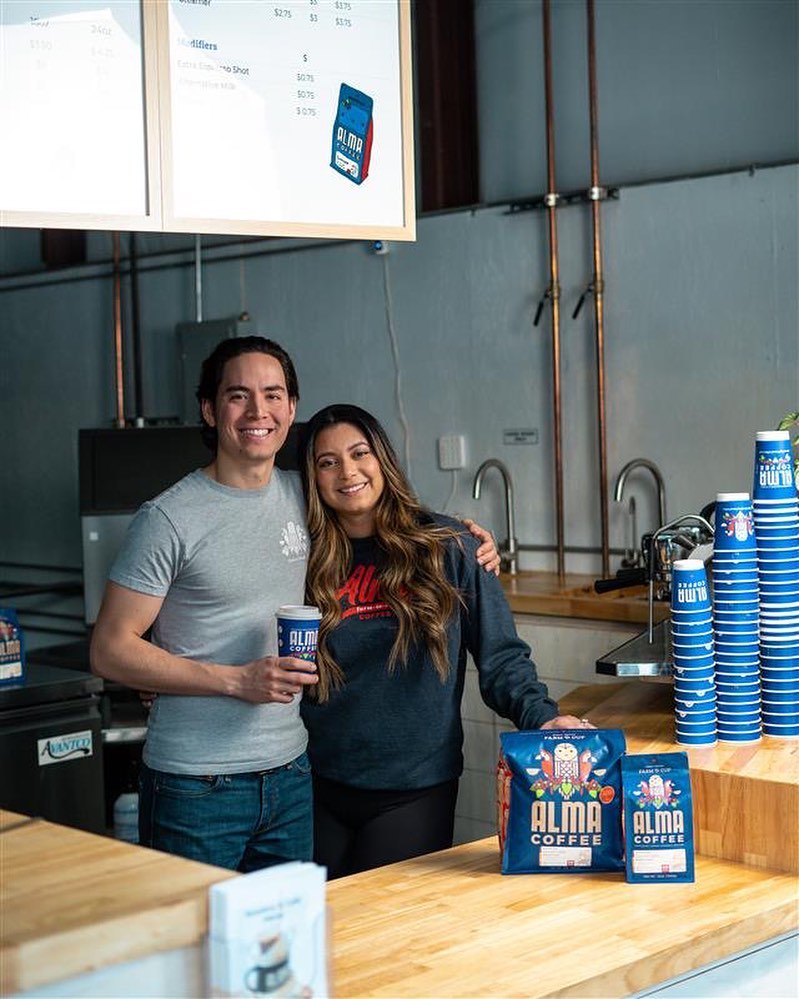
Al’s son-in-law and daughter, Harry and Leticia Hutchins, the founders of Alma Coffee.
Alma Coffee
Al and Leticia’s children were so inspired by their work on the farm that his daughter and son-in-law quit the corporate jobs to open a coffee roaster in Atlanta, Georgia. Alma Coffee serves as the importer for Finca T’s coffee, and helps develop markets for it in the U.S.
Cinderella’s Shoe
Imagine Bob and I sitting at a table at a coffee tradeshow in San Salvador, our eyes as round as dinner plates, listening to Al tell us his story. Despite the heat, the hair was standing up on the back of my neck. What he was describing to us was so incredible, so compelling, and so values-aligned with what we’re up to, that it was almost hard to believe. We had to see it for ourselves.
We asked him if we could come visit. And without hesitation, he said yes.
So, we scheduled our Boots on the Ground trip for about a month later, and we got our team ready for the journey.
I can’t wait to tell you what we found at Finca Terrerito. Spoiler alert: it was even better than we’d imagined.

